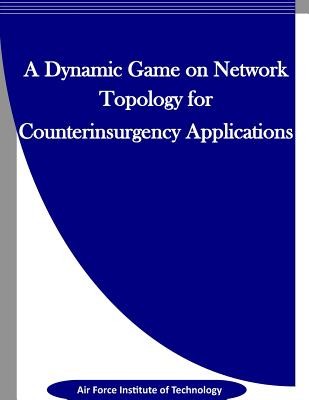| A Dynamic Game on Network Topology for Counterinsurgency Applications Contributor(s): Penny Hill Press Inc (Editor), Air Force Institute of Technology (Author) |
|
 |
ISBN: 1523342080 ISBN-13: 9781523342082 Publisher: Createspace Independent Publishing Platform OUR PRICE: $12.30 Product Type: Paperback - Other Formats Published: January 2016 |
| Additional Information |
| BISAC Categories: - Political Science | Terrorism - History | Military - Strategy |
| Physical Information: 0.19" H x 8.5" W x 11.02" (0.51 lbs) 90 pages |
| Descriptions, Reviews, Etc. |
| Publisher Description: Successful military operations are increasingly reliant upon an advanced understanding of relevant networks and their topologies. The methodologies of network science are uniquely suited to inform senior military commanders; however, there is a lack of research in the application of these methods in a realistic military scenario. This study creates a dynamic game on network topology to provide insight into the effectiveness of offensive targeting strategies determined by various centrality measures given limited states of information and varying network topologies. Improved modeling of complex social behaviors is accomplished through incorporation of a distance-based utility function. Moreover, insights into effective defensive strategies are gained through incorporation of a hybrid model of network regeneration. Model functions and parameters are thoroughly presented, followed by a detailed sensitivity analysis of factors. Two designed experiments fully investigate the significance of factor main effects and two-factor interactions. Results show select targeting criteria utilizing uncorrelated network measures are found to outperform others given varying network topologies and defensive regeneration methods. Furthermore, the attacker state of information is only significant given certain defending network topologies. The costs of direct relationships significantly impact optimal methods of regeneration, whereas restructuring methods are insignificant. Model applications are presented and discussed. |